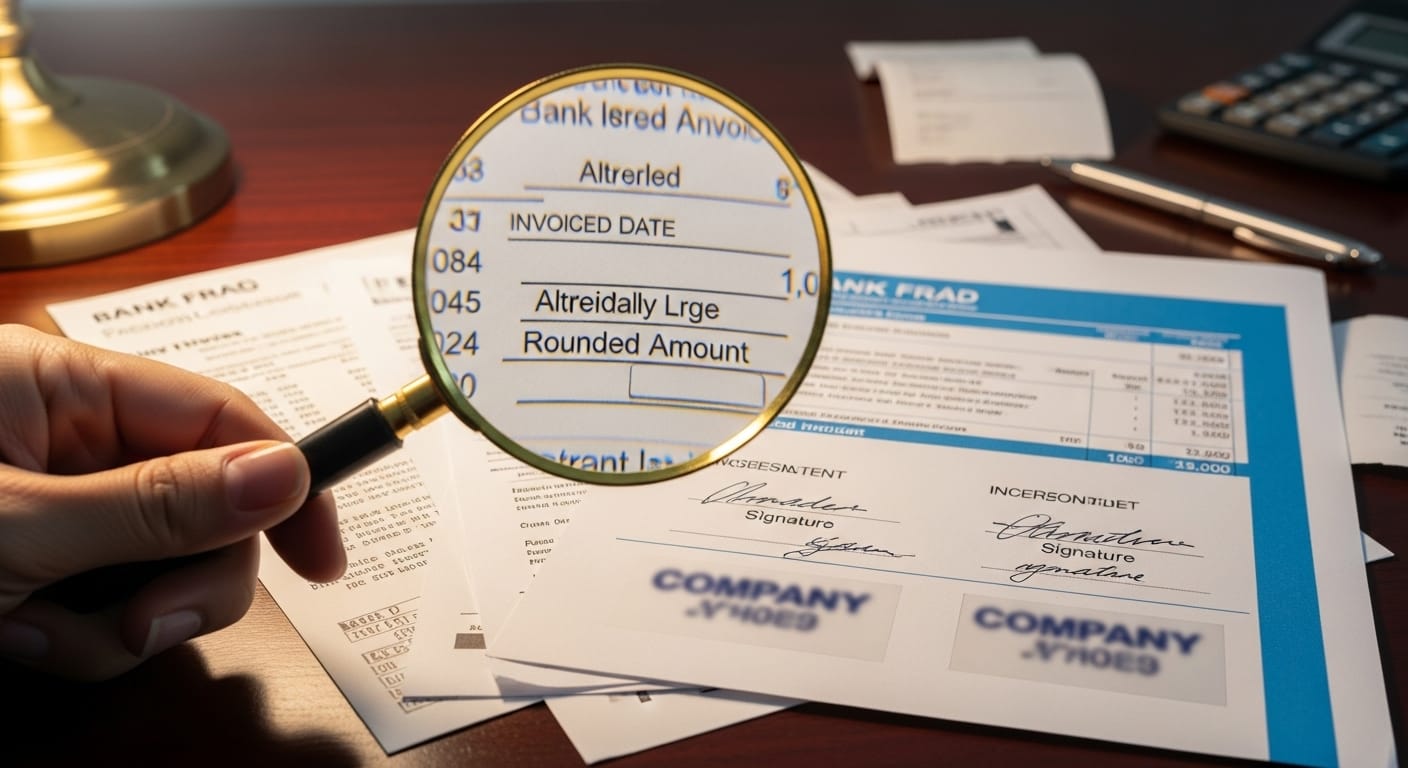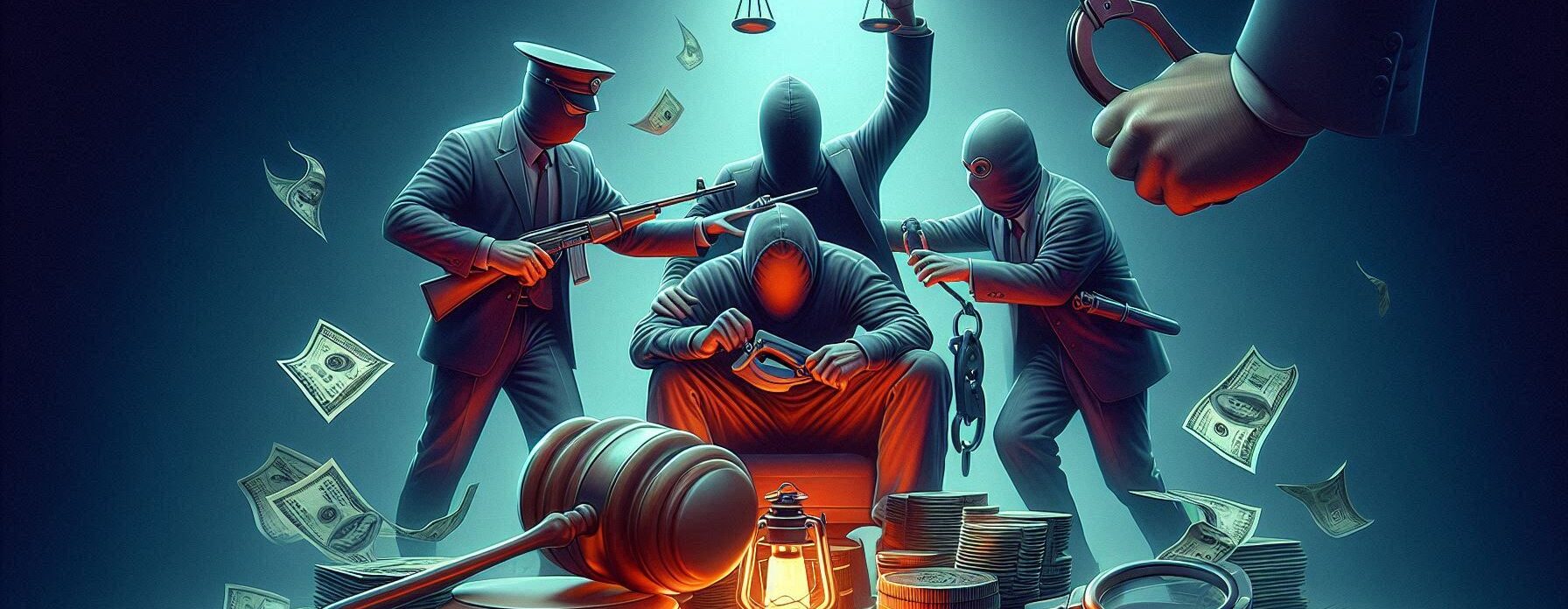Financial fraud can feel like a bad horror movie where the villain is lurking just around the corner, ready to snatch away your hard-earned money. It’s sneaky, it’s clever, and it often leaves you wondering how you didn’t see it coming.
But don’t worry! By keeping your eyes peeled for certain warning signs, you can dodge that financial monster before it devours your wallet. So grab your magnifying glass (or maybe just a cup of coffee), and let’s dive into the world of financial fraud together!

Top Takeaways and Key Concepts
Monitor accounts regularly to spot unusual transactions before they become serious fraud.
Avoid high-pressure tactics by slowing down and verifying any urgent financial request.
Demand transparency and refuse to proceed without clear documents, terms, and contact details.
Question unrealistic promises because high returns with low risk are classic scam red flags.
Protect personal information and report suspicious activity immediately to prevent identity theft.
Summary of This Article
This article explains how to recognize and protect yourself from financial fraud by staying alert to common warning signs. It defines financial fraud as deceptive schemes designed for financial gain and emphasizes that fraud can happen to anyone, often in subtle ways. Key red flags include strange account activity, aggressive sales pressure, missing or unclear documentation, and offers that seem too good to be true. Identity theft is highlighted as a major risk, and readers are encouraged to secure personal information and shred sensitive documents. The article stresses the importance of reporting suspicious transactions quickly and staying informed about evolving scam tactics to stay one step ahead of fraudsters.
Understanding Financial Fraud: What Is It?

First off, let’s clarify what we mean by financial fraud. In simple terms, it’s when someone deceives another person or entity for personal gain—usually involving money. This could be anything from identity theft to investment scams that sound so good they make you want to jump out of your seat in excitement (but not in a good way).
Interestingly enough, financial fraud isn’t limited to shady characters in trench coats lurking in dark alleys. Nope! It can happen right under our noses—like when Uncle Bob insists on handling all his investments himself after watching one too many late-night infomercials about “get rich quick” schemes.
Unusual Account Activity: Keep an Eye Out

One of the first signs of potential fraud is unusual activity in your bank accounts or credit cards. Now, I know what you’re thinking: “Isn’t my cat jumping on my keyboard at 3 AM unusual enough?” But I’m talking about transactions that seem out of place.
For instance, if you see charges for something like “Giant Rubber Duck Co.” and you’ve never ordered anything resembling oversized bath toys, alarm bells should start ringing louder than a fire truck on its way to save kittens from trees! Regularly monitoring your accounts can help catch these discrepancies early.
Pressure Tactics: If They’re Pushing You…
Let’s face it: if someone is trying to rush you into making a financial decision—especially over the phone or through email—it’s time to take a step back and evaluate whether this is legitimate or if they’re trying to pull a fast one on you.
Scammers love creating a sense of urgency; they’ll say things like “Act now or miss out!” Remember those classic commercials for kitchen gadgets?
Imagine them but with high stakes involving your savings! If something feels rushed or too good to be true (like winning the lottery while still waiting for last week’s pizza delivery), trust your gut.
Lack of Transparency: Where Are Your Documents?
Another red flag that should send up smoke signals is when someone refuses to provide clear documentation regarding their offers or services. If you’re getting vague answers about fees or conditions that sound more confusing than IKEA assembly instructions, run—don’t walk—in the opposite direction!
Legitimate businesses are usually happy to share information; after all, they want customers who feel informed and confident—not bewildered as if they’ve just entered an alternate universe where nothing makes sense.
Too Good To Be True Offers
Ah yes, the classic “too good to be true” offer—the golden ticket scammers use like candy at Halloween! Whether it’s promises of sky-high returns on investments with little risk involved or products sold at prices so low you’d think they’re made from unicorn tears—beware!
If an investment opportunity sounds better than finding extra fries at the bottom of the bag (and we all know how rare that is), then it’s probably worth investigating further before diving headfirst into what could become a financial black hole.
Identity Theft: Protecting Your Personal Information
Identity theft has become as common as people posting pictures of their lunches online—and that’s saying something! Scammers will go through great lengths to steal personal information such as Social Security numbers and bank details.
To protect yourself from identity theft, always secure sensitive documents and shred anything with personal information before tossing it away. I mean, do we really need strangers knowing our favorite pizza topping? That’s private business!
The Importance of Reporting Suspicious Activity
If you suspect any fraudulent activity—whether it’s strange transactions popping up on your statement or being pressured into making hasty decisions—report it immediately! Contact your bank or credit card company right away; they have protocols in place designed specifically for these situations.
By doing this swiftly, not only do you protect yourself but also help prevent others from becoming victims. Think of it as joining forces against the villains lurking in cyberspace!
Staying Informed: Educate Yourself About Fraud Trends
Finally, staying educated about current trends in financial fraud is essential for protecting yourself. Scammers are constantly evolving their tactics faster than fashion trends change every season (and believe me; nobody wants last year’s scams!).
Follow reputable news sources and organizations focused on consumer protection—they often share valuable insights about emerging threats and how best to avoid them. Knowledge truly is power when fighting against these crafty con artists!
Suggested External Resources:
Recognizing Financial Fraud
https://www.consumerfinance.gov/consumer-tools/fraud/
How To Report Identity Theft
https://www.identitytheft.gov/
Understanding Investment Scams
https://www.sec.gov/investor/pubs/scams.htm
Frequently Asked Questions
What is financial fraud?
Financial fraud is any deceptive act intended to gain money or assets illegally, including scams, identity theft, and false investment opportunities.
What are common warning signs of financial fraud?
Red flags include unusual account activity, high-pressure tactics, vague or missing documentation, and offers that promise unrealistic returns with little or no risk.
How can I protect myself from financial fraud?
Monitor your accounts regularly, safeguard personal information, verify financial requests, and never rush into decisions based on urgency or fear.
What should I do if I suspect fraudulent activity?
Report suspicious activity immediately to your bank or financial institution. Acting quickly can limit damage and help prevent further fraudulent transactions.
Why is transparency important in financial transactions?
Legitimate companies provide clear terms, documentation, and contact details. A lack of transparency often signals a potential scam or dishonest intent.
Can identity theft be considered financial fraud?
Yes, identity theft is a form of financial fraud where someone steals personal data to access your accounts, open credit lines, or make unauthorized purchases.
How can I stay informed about new fraud schemes?
Follow trusted financial news sources and consumer protection agencies that report on emerging scams and offer tips to stay ahead of evolving fraud tactics.

Kevin Collier is a legal expert passionate about simplifying complex legal concepts for everyday individuals. With a focus on providing clear, practical information, he covers a wide range of topics, including rights, responsibilities, and legal procedures. Kevin aims to empower readers with the knowledge they need to navigate the legal landscape confidently, ensuring they can make informed decisions regarding their legal matters. Through insightful articles and easy-to-understand resources, he helps demystify the law, making it accessible to all.










